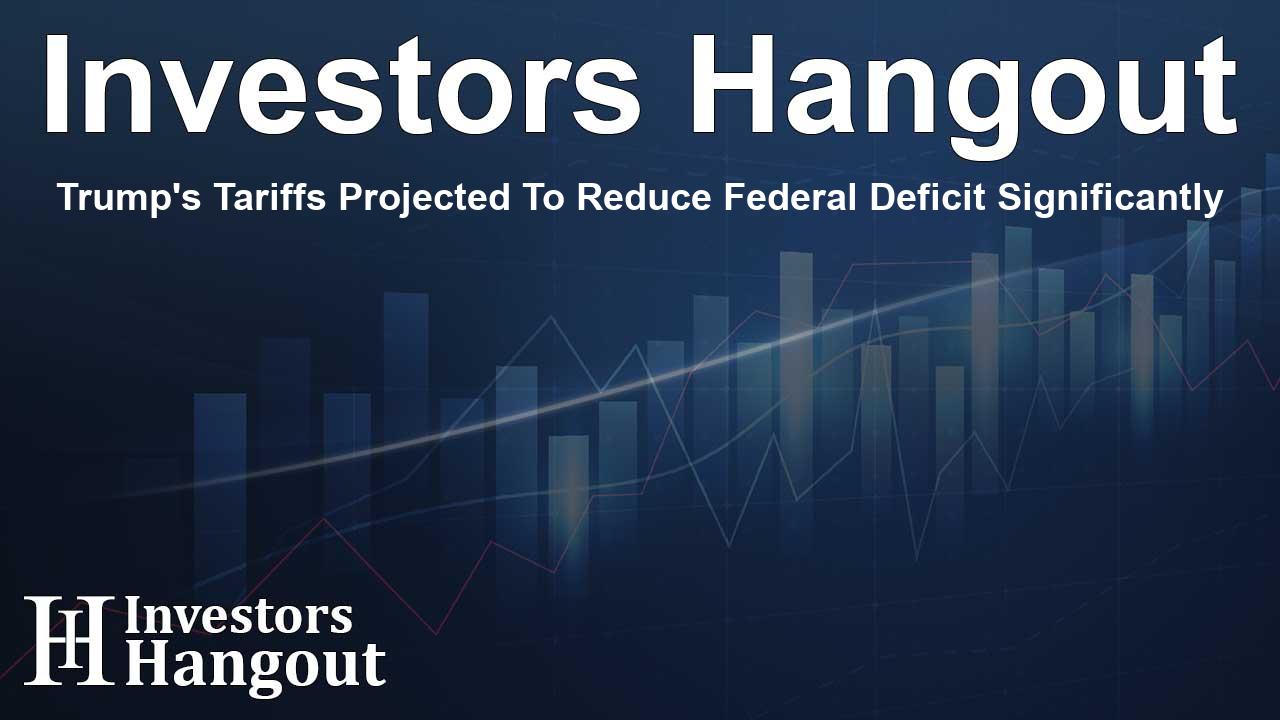Trump's Tariffs Projected To Reduce Federal Deficit Significantly

Significant Impact of Tariffs on Federal Deficit
Recently, monumental claims emerged from the office of President Donald Trump regarding the effectiveness of his tariff strategies. A report from the Congressional Budget Office revealed that these tariffs could lead to a reduction of $4 trillion in the U.S. deficit over the next decade. While this projection is met with excitement from the president, it comes globally under scrutiny as many economists caution that such measures could adversely affect long-term economic growth.
Understanding the CBO's Report on Tariffs
CBO's Forecast on Tariff Revenue
The CBO's latest projection highlighted that the tariffs imposed in the past year are set to decrease primary deficits by approximately $3.3 trillion by 2035. Additionally, there are expected savings of $700 billion stemming from lowered interest costs, creating a total reduction target of $4 trillion. This figure is notably higher than earlier forecasts, with tariff revenues expected to rise from previous averages of about $80 billion annually to an estimated $200 billion by the year 2025.
Trump's Responses to the Findings
In his remarks, Trump declared that the report substantiates his previous assertions about tariff revenues having the power to lessen the deficit unexpectedly. Trump's social media platform, Truth Social, saw him exclaim that not only are deficits declining, but many economic indicators such as taxes and energy costs are also down. He expressed a sense of pride in America's current economic position, dubbing it the 'hottest' country in the world.
Effects of Tariffs on Legislative Measures
Alongside the CBO report, there are implications regarding Trump's significant spending bill, titled the 'One Big Beautiful Bill Act,' which previously passed the House but faces challenges in the Senate due to its large price tag of $3.8 trillion. The revenue from tariffs is considered a potential cushion against this fiscal pressure, helping to maintain stability in the overall economic landscape.
Concerns Raised by Rating Agencies
Impact on U.S. Debt Ratings
Prominent rating agencies, including S&P Global and Fitch, have taken note of the increasing tariff revenues when evaluating the U.S. debt. They mentioned this surge as pivotal in maintaining current ratings and avoiding downgrades. Nevertheless, there remains a vital need to address the uncertainties surrounding the future fiscal environment, especially considering inflationary pressures.
Long-Term Risks from Economists
Despite the optimistic points raised by the CBO's findings, economists have voiced concerns about potential long-term growth risks. For example, Morningstar's Thomas Torgerson conveyed that while the revenues from tariffs may offer a short-term boost, they could diminish over time as trade patterns adjust away from the U.S. market. The CBO itself indicated that its analysis carries significant uncertainty amid unpredictable global trade dynamics and potential legal challenges surrounding these tariffs.
Tariffs and Future Political Landscape
Trump's administration firmly views tariffs as a critical tool for promoting economic nationalism and restoring domestic manufacturing. He has suggested that repercussions could be severe, potentially leading to a 'Great Depression' should the judicial system overturn his tariff policies. Treasury Secretary Scott Bessent has also previously commented on the belief that the revenue generated could be substantial enough to address U.S. debt effectively.
Frequently Asked Questions
What did the CBO report predict about tariffs?
The CBO reported that tariffs could help reduce the U.S. federal deficit by up to $4 trillion over the next decade through increased revenue and lower interest costs.
How did President Trump react to the CBO's findings?
Trump celebrated the findings, asserting that they validated his previous claims about the effectiveness of tariffs in reducing the deficit.
What are the potential risks of Trump's tariff strategy?
Economists warn that while tariffs may offer temporary revenue, they could diminish over time and pose risks to long-term economic growth and trade stability.
How might tariffs affect Trump's spending bill?
Tariff revenues are expected to help offset some of the financial stress associated with Trump's significant spending legislation, making it easier to manage economic pressures.
What do rating agencies think about the tariff revenues?
S&P Global and Fitch indicated that the rising tariff revenues contribute positively to maintaining their assessments of U.S. debt, although they caution about possible future fiscal challenges.
About The Author
Contact Logan Wright privately here. Or send an email with ATTN: Logan Wright as the subject to contact@investorshangout.com.
About Investors Hangout
Investors Hangout is a leading online stock forum for financial discussion and learning, offering a wide range of free tools and resources. It draws in traders of all levels, who exchange market knowledge, investigate trading tactics, and keep an eye on industry developments in real time. Featuring financial articles, stock message boards, quotes, charts, company profiles, and live news updates. Through cooperative learning and a wealth of informational resources, it helps users from novices creating their first portfolios to experts honing their techniques. Join Investors Hangout today: https://investorshangout.com/
The content of this article is based on factual, publicly available information and does not represent legal, financial, or investment advice. Investors Hangout does not offer financial advice, and the author is not a licensed financial advisor. Consult a qualified advisor before making any financial or investment decisions based on this article. This article should not be considered advice to purchase, sell, or hold any securities or other investments. If any of the material provided here is inaccurate, please contact us for corrections.
